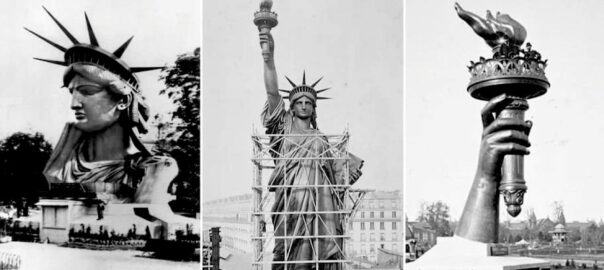
This week we remember the Japanese attack on Pearl Harbor and the formal entry of the USA into World War II. While we were already defacto allies with Great Britain and the Soviet Union against Germany, the events of December 7-11 turned a European conflict into a World War and awakened the “sleeping giant” of our industrial and military capacities. Though we directly responded to the attack in the Pacific, Hitler and Mussolini’s declarations of war made the conflict global.
The events of 1941-1945 are well-known. In this essay I want to highlight the sacrifices of a generation and the consequences of the conflict for increasing the love for liberty in the USA and around the world. The soldiers in all theaters knew they were fighting for freedom against totalitarian regimes that regarded other races as inferior. Japanese treatment of conquered nations and prisoners of war was inhuman, for they regarded Chinese, Korean, and other Asian populations as created to serve them. POWs were starved and tortured, seen as cowards for surrendering rather than committing Hari Kari (suicide). The Nazi genocides and oppressions stagger the imagination as six million Jews and six million other non-combatants are destroyed in the demonic labor and extermination universe crafted by this evil regime. This is why millions of American men and women enlisted and gave their all.
A special note here: I am generalizing about the German and Japanese governments and people in power at the time, not declaring every Japanese or German person guilty.
One story coming out of World War II that deserves more attention is the millions of African American women and men that signed on for civilian and military service. In spite of the oppressions of Jim Crow and the segregation in the military, these brave folks fought and worked for their country, believing in the promises of liberty and justice in the Declaration of Independence and The Constitution. The story of the Tuskegee Airmen is one of courage against great odds. Black civilian workers and soldiers were paid less, given less prominent positions, and, in general, relegated to the lowest rungs in the institutions. Yet, they shined in their bravery and sacrifice.
Another triumph out of tragedy narrative is the story of Japanese Americans serving in the military in spite of the oppression of the internment camps. The story of the 442nd Regimental Combat Team soldiers in the Italian campaigns of 1944-45 is one of courage and sacrifice. Soldiers in the 442nd RCT and their partners in the 100th IB earned seven presidential unit citations, two meritorious service plaques, 36 Army Commendation medals and 87 division commendations between them. Individual soldiers from both units earned 21 Medals of Honor, 29 Distinguished Service Crosses, 15 Soldier’s Medals and 9,500 Purple Hearts, among many other honors. In 2011, 450 Japanese American soldiers from the 442nd RCT and 100th were awarded the Congressional Gold Medal, the United States’ highest civilian award for service.
These are wonderful stories, and their impact was felt far beyond the battlefield. After the war, the Civil Rights Movement found new life, with a simple question, “If someone is willing to die for America, why are they kept from voting, education, housing and jobs?” President Truman integrated the military and by the mid-1950s, with the Brown vs. the Board of Education Supreme Court ruling making segregation in schools unconstitutional, momentum for justice increased. By 1965, Civil Rights and Voting Rights were the law of the land. By the 1970s and 1980s, the injustice of the internment camps came to light and reparations started.
America mobilized for liberty in a global war. As a result, she was able to mobilize for liberty for her own citizens, especially African Americans and immigrants. It is fitting that we honor this “greatest generation” by expanding its members to include the marginalized and oppressed, who, through sacrifice, paved the way for opportunities for their children. Though there is much work to be done, we have come a long way due to the work of these humble women and men
